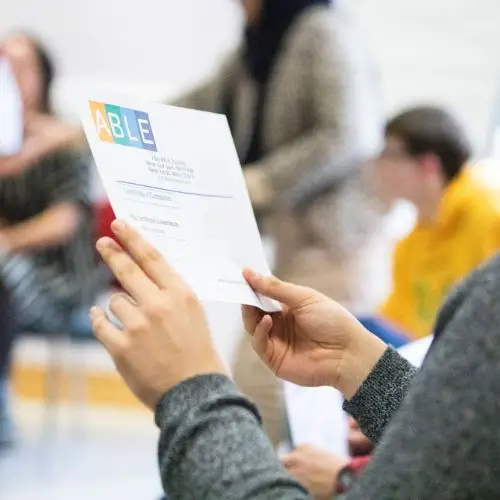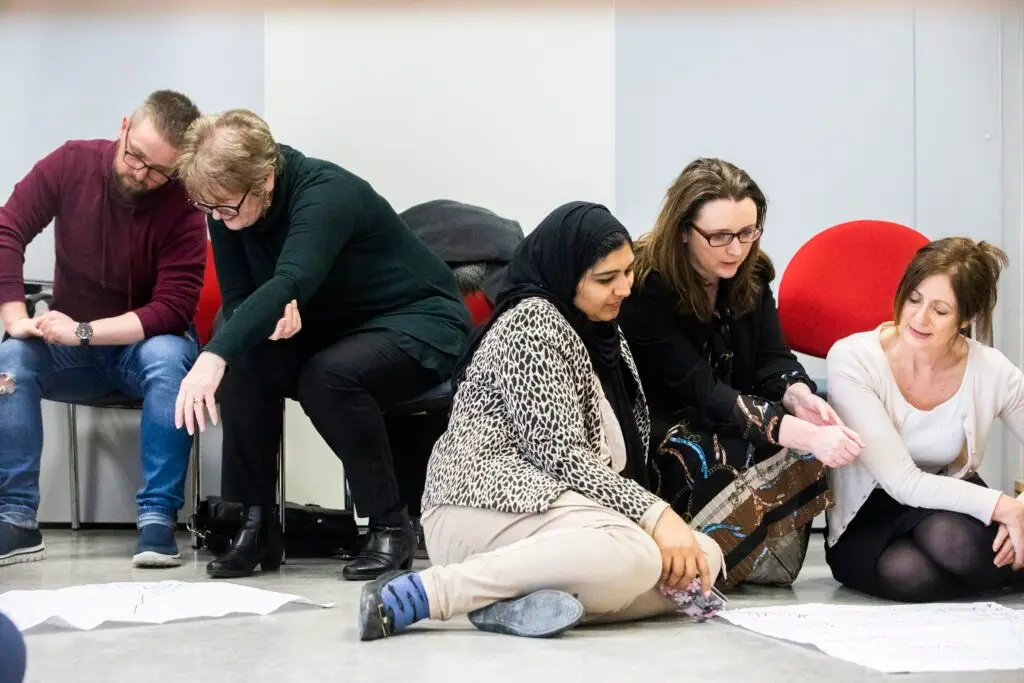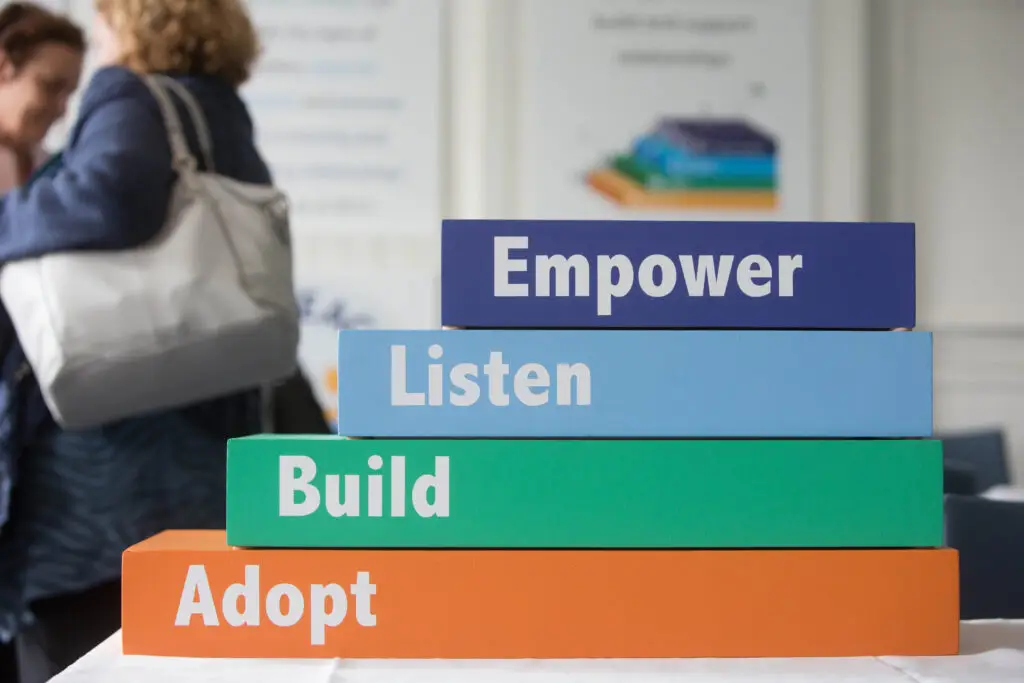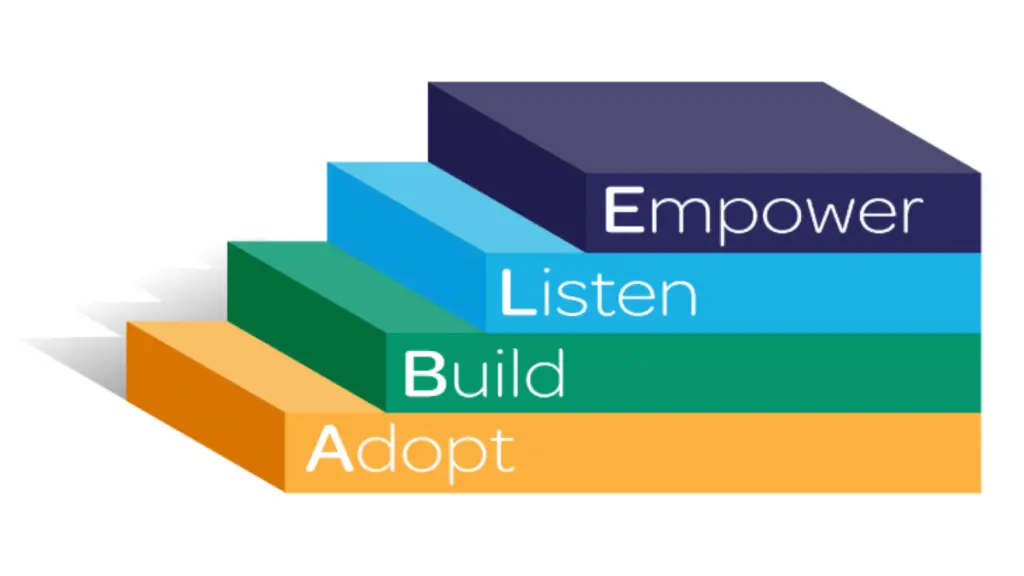CPD-approved and evidence-based ABLE4Practitioners helps you to:
• Become a more reflective practitioner and be more relationship-centred
• Manage time better and be clear about the boundaries of your role and competence
• Listen reflectively without feeling overwhelmed or needing to “fix it”, adopting a narrative of hope
• Be proactive, build rapport, and establish trust with clients
• Empathise and respond in a sensitive way to clients, while attending to your own wellbeing
• Understand that the quality of relationships is a key social determinant of health and well being
• Recognise relationships as both protective and risk factors in improving outcomes for clients
• Empower clients to make their own decisions, building their capability and resilience
1 Day ABLE training programme;
'Building relationships and maintaining professional boundaries.’
This 1 day workshop is delivered by two licensed Relationships in Practice trainers from 9.30am – 4.30pm. Our trainers model the skills of our ABLE training model and use a mix of adult learning styles, auditory, visual, and experiential, using a strengths-based approach and encouraging a growth mindset. We understand that staff may sometimes find it difficult to establish clear boundaries in their role. This can be particularly difficult at times of change and transition, across the life cycle and with changes in an organisation. This is where our training can help. This one-day workshop provides a reflective space to take time to reflect on transitions and the impact on individuals , teams, and an organisation. It also provides a framework and the skills to help take a person-centred approach to empower clients while protecting practitioner’s own time, boundaries and wellbeing. The small group learning experience and interactive workshop provides opportunities for peer learning and support.


3 Day ABLE training programme;
Our 3-day ABLE evidenced-based ABLE4Practitioners training programme is open to all frontline practitioners in healthcare, social care, social work and justice.
This programme shares emerging scientific insight from the fields of relationship theory, childhood adversity, transition and developmental model of relationships, Polyvagal theory and interpersonal neurobiology to help you understand what may be going on for the children and adults you engage with at work. In these experiential and reflective spaces, you will develop your understanding of the power of active/reflective listening and how positive relationships lead to better outcomes.
ABLE4Managers - 1 day;
'Aim: Reflect on and clarify the part the Manager plays in creating, building and nurturing relationships with colleagues to increase connection, communication and productivity
At the end of the day you will be able to:
- Identify the stages of ABLE – A Brief Intervention Model
- Understand the relevance of adopting a relational approach, why relationships matter and how listening and empowering impacts positively the health and wellbeing of employees
- Begin to consider how relationship skills can improve outcomes in your role as a Manger, build stronger quality relationships, while managing your time and boundaries
- Revise and categorise the skills necessary to build rapport and boundary a brief intervention using the ABLE Model
- Demonstrate how to use the framework in full, in response to a colleague who wants to talk or is stressed, using the ABLE model skills and framework


“Thank you, delighted to have had the opportunity to partake in this course. The course instructors were very skilled in both their presentation and application of the course information and this came across very clearly over the 3 days of the course. The use of both personal and work scenarios made the information very relevant & valuable.”
.” ABLE4Practitioners participant
Our approach:
• Small group learning experience for groups of 12-16 people
• A strengths-based, growth-mindset approach
• In person and virtual reflective and nurturing training spaces
• Co-facilitated by two licensed practitioners who ‘model the ABLE model’
• A bank of relevant scenarios for practitioners
• Mixed adult learning styles including auditory, visual and experiential input
• Time for participants to reflect on and discuss the evidence-based input
• Our ABLE course runs over three days, with a gap between Day 1 and Day 2 and a refresher session so that participants can embed the learning into their practice
• A participant manual with specific feedback and reflective exercises
• Post training
• We continuously monitor and evaluate our training through qualitative and quantitative feedback to ensure best practice and better outcomes for all.
• Daily participant feedback
• Pre and post-course questionnaires
• Trainer reports
• Post-training commissioner feedback
• Complementary post-training ABLE in Practice sessions to embed the learning into practice
• Regular Trainer Update sessions
We run a schedule of open sessions throughout the year so please contact us for further information and dates. Our 3-day ABLE4Practitioners programme is also available on a commissioned basis.
Modules
We Have Developed Short Modules, Each Suitable For 2-3 Hours, Specifically Designed For Various Sectors:
•Teachers •GP Training Schemes •General Audiences
Establishing And Maintaining Relationships
Aims
This module will support practitioners to relate in both their client practitioner relationships and in teams.By the end of this session participants will understand how the Pinch Crunch model can support them in establishing relationships in practice and in planning renegotiation in response to change.
Transitions Workshop
Aims:
Provide a framework to consider transitions across the life cycle and in work settings.
Provide a space for practitioners to consider the current space they occupy and their response to change.
Provide the opportunity for practitioners to reflect on the key aspects of adjusting to change.
Identify supportive resources.
Opportunities And Challenges Of A Relational Approach
Aims
Identify stages of transitions and value of early intervention.
Explore and practice the skills of the ABLE Brief intervention.
Discuss Maslow’s Hierarchy of Needs, developmental stages of relationships, hidden issues, as ways of understanding what may be going on for patients and how this might present in practice.